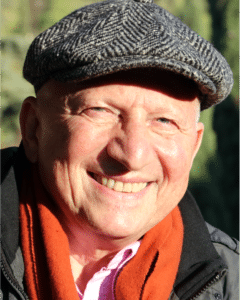Science without suspicion
“Science without conscience is but the ruin of the soul”, Rabelais once said. We could also misquote by saying “Science without suspicion is but the ruin of the soul”, given that scepticism is an essential driving force of science. Without it, knowledge would remain absolute. Science involves questioning the most obvious truths. A scientist is naturally troubled. He is willing to question everything, and to that end, he nurtures a “good” form of doubt, one that is constructive and methodical.
Because of the scientists’ natural scepticism, society is riddled with another form of doubt: widespread scepticism, challenging the results of science. When both phenomena meet, scientists become hostages of their own doubt.
In the scientific community, lack of consensus is a normal situation. Science advances by controversy, which is eventually resolved.
In the scientific community, absence of consensus is natural. Science moves forward through controversial debates which end up being resolved. A result or an experiment takes into consideration two or three different views, new questions emerge, and novel controversies are formed. However, in the public sphere scientists only criticise to offer counter-arguments, not to advance the understanding of a phenomenon. This stance has nothing to do with scientific doubt.
As long as scientists worked on the fringes of the public sphere, controversies were confined to the scientific community. Nowadays, thanks to open access publications and other forms of knowledge dissemination, the circulation of science has opened up. On one hand, this sharing of knowledge is an opportunity, but on the other, it is met by a collective form of mistrust. The first months of the Covid-19 outbreak in 2020 are a striking example of this phenomenon. Researchers and doctors in France who naturally confronted their hypotheses faced “60 million virologists”. A clash between scepticism and mistrust.
The methodology of defiance
When a scientist doubts, he does not do so without method. If he questions a fact, sometimes just to explore in greater depth an element in a given issue, in return, he accepts that his question can be rebutted. Whereas in public opinion, objection is complete. Criticism is not intended to solve problems, it is an assertive stance, a commitment. In some debates, particularly in the media, we thus witness the confrontation between convictions and hypotheses. A mix of genres that sows confusion and rattles more than one scientist.
As early as 2018, the problem of scientific posture at the time of post-truth politics was the subject of a report directed by the Ethical Comity of the Centre National de Recherche Scientifique (CNRS)1, to which I belong. This exercise reminds us that organised scepticism, as advocated by the American epistemologist Robert King Merton in its definition of an ideal of pure science, does not challenge knowledge. It is rather a rigorous collective process, a methodology to express doubt. Each step which brings a scientist closer to a fact generates new hypotheses. The scientific community then measures the gap between the understanding of this phenomenon in this new theoretical space and its relevance to the world. Doubt is organised to bring new knowledge and insight.

Defiance in the public sphere is altogether a different matter. Mistrust is built on the suspicion that personal interests might corrupt research integrity. Yet, if outside his laboratory a scientist may have social ambitions and be influenced by complex motives, scientists as a community are only driven by the search for truth.
Paradoxically, this collective dimension might have been overshadowed by “science studies”, a social sciences field which studies how scientific expertise works. By suggesting that power issues in the scientific community are identical to those in other areas of society, they have overlooked the acid test that is scientific experience. In science, truth always comes out as new facts are discovered. We bow down before evidence.
Public mistrust in the face of science also thrives on post-truth speech, meaning arguments imposed by force, without any form of evidence. This post-truth regime is sometimes deliberate, when it serves economic, political, ideological or religious interests. It often arises from a simple assumed indifference in relation to the facts.
Restore science education to its rightful place
To fight mistrust and help the public to distinguish good doubt from widespread suspicion, scientists only have few tools at their disposal. It is very difficult to convince the general public that all the matters called into question are not legitimate.
We must firstly remind the facts, provide evidence. This is what different media ensure with “fact checking”. This exercise has now become essential. Nonetheless, it is not enough, the amount of false information circulating is still too great. Furthermore, the pernicious impact persists even though fallacy has been demonstrated. The public is not made of scientific minds.
The public is not made up of scientific minds. It is therefore crucial to better explain the scientific process in primary school.
It is therefore crucial to start explaining the scientific approach in primary school. This wishful thinking is however hampered by the initial training of school teachers, who mostly have a literature background. This question of science training from a very early age remains a major lever.
In my view, it would also be useful to teach the history of science. This discipline has the merit of showing that science makes progress through trial and error. It shows the nature of scientific controversy and, combined with epistemology, it helps explain the way ideas are built. These approaches are still poorly represented, including in academic courses. They could nevertheless be methodological allies for researchers, or even, if taught in high school, restore scientific understanding in general knowledge.








